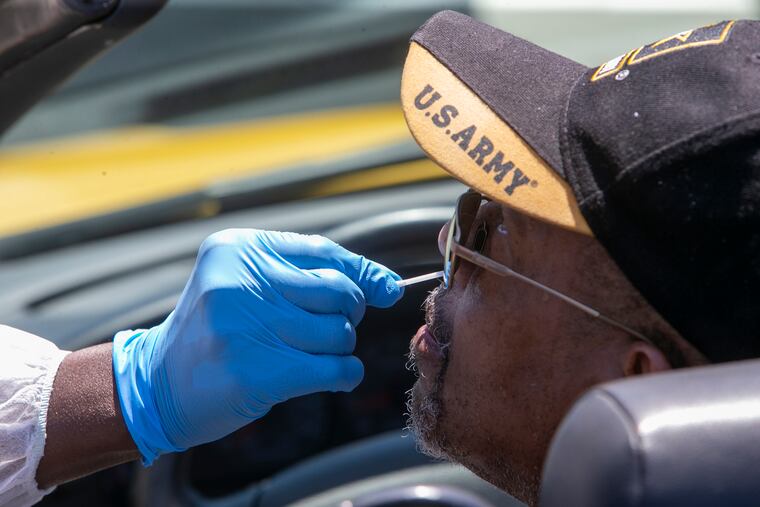Do still test for COVID if you feel ill, Philly doctor says
If you do feel ill with respiratory symptoms, don’t assume it is “just a cold.”

In a now largely mask-less environment with far fewer COVID-related headlines, it is easy to regress to old ways of thinking about respiratory symptoms.
That is what happened when my patient, a healthy, middle-aged construction worker, developed sneezing and congestion. Fully vaccinated, he had been less cautious with masking and enjoyed some crowded indoor venues in recent weeks.
With COVID no longer top of mind, he assumed that he was suffering from allergies, or a mild cold. Neither need interfere with upcoming travel plans with his girlfriend — or so he thought.
Two days into their trip, his symptoms were abating, but his girlfriend developed a sore throat and harsh cough. A detour to the pharmacy for COVID antigen tests confirmed that they were both positive. On the way home — four days earlier than planned — they wondered how many people they had infected.
Hopefully none who were vulnerable to long-term COVID.
Effective vaccines and antivirals have reduced the number of cases and limited the threat of hospitalization and death from COVID.
» READ MORE: Large study provides powerful evidence of long COVID’s lasting impact
This has allowed our lives to return to something comfortable and familiar. Eating in restaurants and in-person gatherings with friends and family no longer feel as dangerous. But the moral of this story is that, despite the appearance of normalcy, COVID is still very much among us and poses a serious threat, especially to the elderly and others with chronic illness or who remain unvaccinated.
This reminds me of the standard advice about driving in freezing cold weather — the roads may look “normal,” but it still pays to be cautious and stay on the lookout for patches of ice. Accidents due to careless behavior can harm you and others on the road.
If you do feel ill with respiratory symptoms, don’t assume it is “just a cold.”
Mask up and take a home COVID antigen test. If the results are positive, stay home and call your primary care clinician to find out whether you are a candidate for antiviral treatment, and for guidance on how long to keep yourself isolated from others. This is especially important with the winter season approaching.
Oh — and remember to get your flu shot, too.
Jeffrey Millstein is an internist and regional medical director for Penn Primary Care.